Experiences, Memories and Friendships.

Welcome
FROM THE HEAD
A bridge to an extraordinary future.
Choosing a Sixth Form is probably one of the biggest decisions that parents and students have to make. Whether you know Ipswich School already, or perhaps are choosing an independent school for the first time, do please come and see how we can help you to create your own ‘extraordinary future’.
As our Core Values set out, it is really important to us that by the time they leave the Senior School, pupils have fulfilled their potential in a range of areas and discovered a number of passions.
We offer an extraordinary mix of classroom success and co-curricular opportunities. Pupils achieve excellent exam results (and go on to top universities); in 2025, 82% A*-B at A Level - but also achieve exceptional all-round success in music, drama, art and sport, and many more areas besides.
At the core of our education is a desire to inspire our pupils so that they leave us with a body of knowledge, a portfolio of skills and a strong sense of self-worth, self-knowledge and their place in the world. We expect them to be fully aware of the responsibility that should accompany the privilege of having received a great education. We want them to develop skills in collaboration, communication, creativity and critical thinking.
We have a strong pastoral system to support your child, with tutors who know their pupils well, and specialist support throughout the school which includes learning support, study skills, wellbeing and counselling. Through this we ensure pupils are nurtured to become confident, self-assured and resilient young people. One of our key aims is to “...provide an environment where pupils feel safe and brave in all that they do...”
Importantly, our co-curricular activities give our pupils the opportunity to develop a wide range of skills outside of the classroom, not only by way of sport, music and other performing arts, but also putting their teamwork and leadership skills to the test through activities such as the Combined Cadet Force, Duke of Edinburgh and our Thursday afternoon activities programme.
Sixth Form pupils all take part in ‘The Edge’ which is designed to give them exactly that (an edge!) as they get ready for life after school. This includes the much-loved residential week away in Devon towards the end of Year 12, a new module working with the London Inter-Disciplinary School on complex problem-solving, group sessions on study skills and wellbeing, and a carousel of taught modules on a diverse range of topics including cookery, public speaking, financial literacy and positive mental health.
When I talk to our pupils, explain to them that I want their time at Ipswich School to be an experience in itself, something to be enjoyed for its own intrinsic qualities and where they will make memories and friendships that will last a lifetime, whilst at the same time preparing them (through the knowledge, skills and personal development mentioned above) for their future lives beyond school.
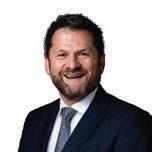
Welcome
FROM THE HEAD OF SIXTH FORM
The most important stepping stone.
The Sixth Form is the most important stepping stone for today’s students. The world they will face is likely to be more challenging, uncertain and changeable than that of their parents.
To flourish in the years ahead of them students need to be well equipped with a broad skill set, have resilience, tenacity and an appreciation of how to sustain their overall wellbeing.
Our Sixth Form offers students all this. It also gives them the very best academic education. They leave with top A Level grades. They secure places at the university of their choice, including Oxbridge and other competitive universities, and study on top degree courses including law, medicine and veterinary science. Or they join a top quality apprenticeship or enter the world of work with a clear plan for future success.
Our teachers are all specialists in their field and they work with ideal class sizes, usually around 10 or 12 and rarely above 16. This means that students build an excellent rapport with their teachers. We offer a wide range of A Levels, and our four subject Year 12 gives students added flexibility when it comes to making their final A Level choice for Year 13. Students may also choose to take an extended BTEC Sport and Exercise Science plus one A Level in the Sixth Form.
There are considerable pressures on Sixth Formers today, many of which are extra to their academic work. Having a positive outlook and being actively involved in school life is central to good mental health, and we really try to promote this in our Sixth Form. However, we are all too aware that sometimes more support is required. We have a great team on hand should it be needed. Our school matron has expert knowledge about teenage physical and mental health.
We also have a school chaplain and dedicated wellbeing co-ordinator. Beyond this we have school counsellors with on-site counselling rooms and other specialists we can call upon.
The wellbeing of our Sixth Formers is always our highest priority. This is why sport is part of the Sixth Form curriculum. We offer top quality games coaching in a wide range of sports and competitive matches with other schools. We also have an abundance of opportunities in drama and music.
Our Sixth Form Centre is a dedicated space for all Sixth Formers, including study rooms, computing facilities, a lounge area and coffee bar. Students really enjoy and look after this facility, which serves as their base throughout Years 12 and 13.
Our Sixth Form is where our students’ extraordinary futures begin to be realised.


Creating Extraordinary Futures

A LEVEL RESULTS
Consistently outstanding results, opening doors to extraordinary futures.
At Ipswich School, academic excellence is built on the foundation of personalised teaching, breadth of curriculum, and unwavering support. Our pupils are challenged to aim high and inspired to achieve their very best; year after year, our results reflect the success of this approach.
These results are more than just numbers; they represent the dedication, curiosity, and hard work of our pupils, supported by expert teaching and a nurturing environment. Strong performance across all subjects ensures that every pupil is well-prepared for the next step, whether that’s the UK’s top universities or exciting opportunities around the world. EXAM HIGHLIGHTS 2025
OPENING DOORS TO THE FUTURE
Our pupils’ achievements reflect the Ipswich School ethos: personal growth, academic challenge, and the confidence to pursue ambitious goals. With results like these, they leave us ready not just to succeed, but to thrive, making a positive impact wherever their journey takes them.
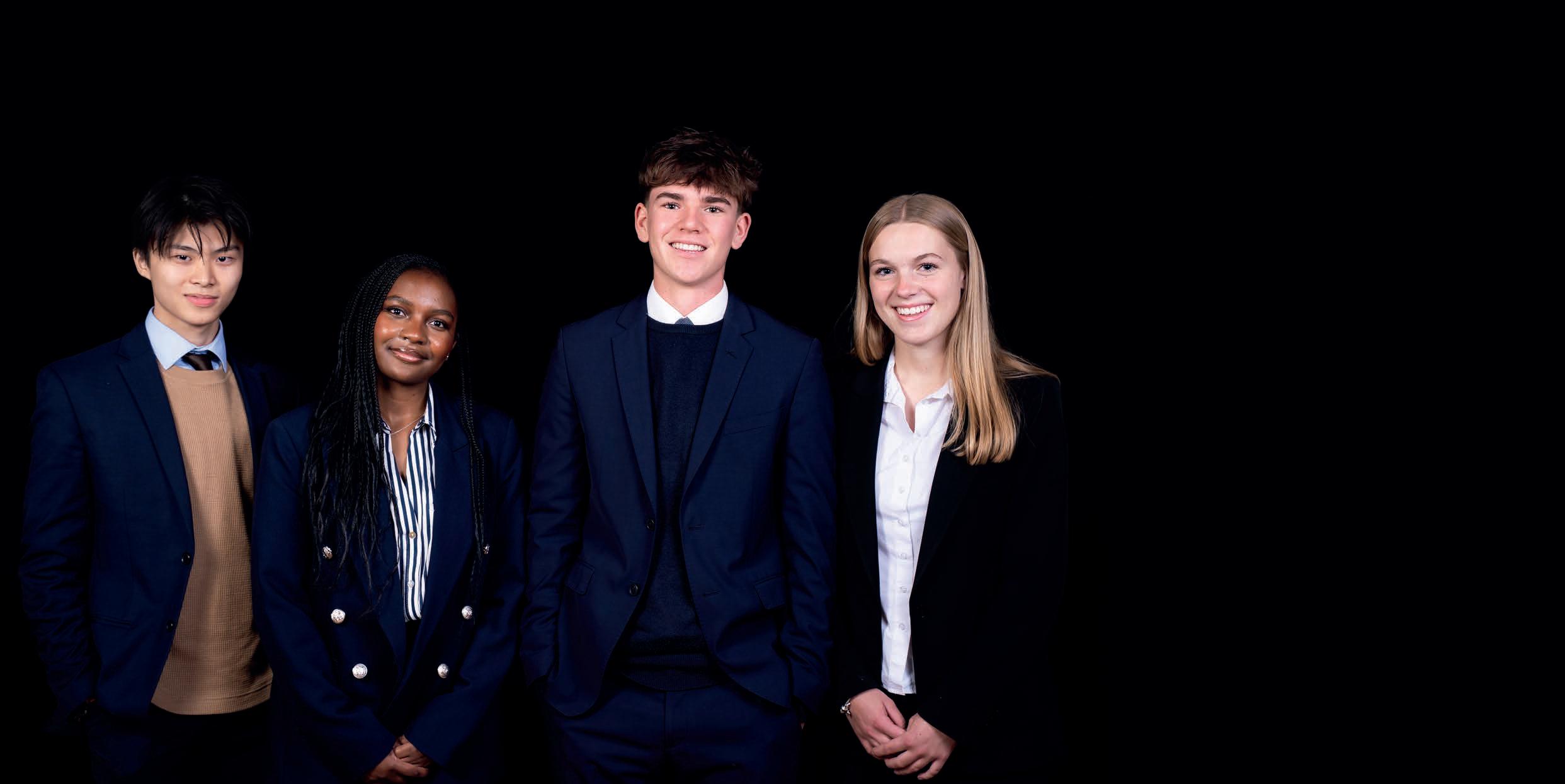
A LEVEL CHOICES
Three or four A Levels?
Normally students in our Sixth Form start Year 12 studying four subjects, which usually drops to three in Year 13. The reason we start with four is that it gives students an important element of flexibility. All too often a student may choose A Levels in Year 11 which might not fully suit them when they get into Year 12. Taking four subjects at the start of Year 12 gives them the opportunity to try them all out, but later hone this to just three subjects.
There are different times throughout Year 12 when students can decide to drop a subject, but for most students we would encourage them to keep going until the end of the year with all four of them. In some cases, often for scientists and mathematicians, students will go on to take all four A Levels at the end of Year 13 and, in some exceptional cases, the most able students may even be able to sit five A Level exams.
Students may also choose to take an extended BTEC Sport and Exercise Science plus one A Level in the Sixth Form.
ART BIOLOGY BUSINESS
(Options to pick one from Fine Art, Textiles or Photography)
Head of department: Ms Vlasta Shevchenko
Exam board: Eduqas
Exam results: Average of the A Level results achieved in Art over the most recent three year period: A* 50%, A*-A 72%, A*-B 88%, A*-C 97%
The A-Level courses are rigorous and comprehensive programs designed to equip students with the essential skills needed for higher education and creative careers. They emphasise both theoretical understanding and practical application, guiding students to cultivate a robust body of work.
In Year 12, students engage with a variety of media and techniques through hands-on workshops, establishing a solid foundation in art and design principles. This year is crucial for developing a diverse range of work that will be central to a strong portfolio. As students transition to Year 13, the emphasis shifts to a Personal Investigation, where they independently research a theme of their choosing to produce a cohesive and specialised body of work. This project, along with a final timed exam piece, delivers the high-quality, focused output that universities and art schools seek.
Our facilities, including a dedicated textiles room and an ICT and photography studio, provide an optimal environment for students to create and refine their work. The program concludes with a public exhibition, offering a professional platform to showcase student achievements.
Assessment for the course is based on a Coursework Portfolio (60%) and an Externally Set Assignment (40%). Both components are evaluated on a student’s ability to develop ideas, document observations, experiment with materials, and present a meaningful final outcome.
Head of department: Mrs Sarah Duncombe-Jones
Exam board: AQA
Exam results: Average of the A Level results achieved in Biology over the most recent three year period: A* 16%, A*-A 56%, A*-B 86%, A*-C 100%
Biology at A Level takes a big step up from GCSE and students are able to look in much greater detail at many of the topics covered in previous years.
The linear course culminates in three exam papers. Year 12 work includes, biological molecules, cell structure, exchange and transport systems and includes a field trip to Holkham in Norfolk with the start of the ecology work for the second year. In Year 13 students look into the complexities of photosynthesis and respiration, as well as the nervous system, genetics and gene expression.
An extensive range of activities allow students to develop their practical skills, enabling them to make links with theories. Students gain practical competency and skills in a range of techniques. These are assessed throughout the course within the normal lab environment.
Students have the opportunity to take part in the Biology Olympiad and we have had many medallists over recent years.
Head of department: Mr Edward Wilson
Exam board: AQA
Exam results: Average of the A Level results achieved in Business over the most recent three year period: A* 4%, A*-A 21%, A*-B 57%, A*-C 83%
A Level Business gives students a clear view of how an organisation operates. Students learn about the challenges of starting a business, enterprise, management of people, communication and motivation, operations management, marketing and competition as well as finance management.
In Year 13 the strategic decisions of large businesses are studied and students will be able to make strong decisions and back them up with real life examples and good analysis of the likely outcomes. Students learn to analyse information provided about a business in order to solve problems by identifying a course of action for that business.
During the course students build up their knowledge of business terminology and strategies, recognising good and bad strategies for a variety of scenarios. In addition, students analyse closely the four major business functions (marketing, human resources, operations and finance) and examine the process of consultation and design. During the course we have visits from local business people and trips to local companies.
Three exams are taken with a mix of short answer, data response and longer essay-type questions.
Students build an excellent rapport with their teachers.
CHEMISTRY DESIGN TECHNOLOGY DRAMA AND THEATRE COMPUTER SCIENCE
Head of department: Mr Daniel Halford-Thompson
Exam board: OCR
Exam results: Average of the A Level results achieved in Chemistry over the most recent three year period: A* 14%, A*-A 50%, A*-B 82%, A*-C 94%
Chemistry at A Level can be divided into three areas: physical, inorganic and organic. Topics studied at GCSE such as bonding, rates of reaction and equilibrium are significantly expanded and new ones are introduced including arenes, buffers and nuclear magnetic resonance spectroscopy. The development of practical skills is an integral part of the course and forms part of the final examinations.
There is a student-run STEM Society which gives pupils a forum to present and discuss interesting topics. At the end of Year 12, students showing great promise are entered for the Cambridge Chemistry Challenge which is a demanding paper that takes students significantly beyond the A Level specification.
Year 13 students have an opportunity to take part in the especially challenging but ultimately rewarding Chemistry Olympiad, which stretches the most able A Level candidates and enables them to really demonstrate their scientific flair.
At the end of the course students sit three written papers consisting of multiple choice and short answer questions.
Head of department: Mr Stuart Dove
Exam board: OCR
Exam results: Average of the A Level results achieved in Computer Science over the most recent three year period: A* 5%, A*-A 48%, A*-B 86%, A*-C 100%
The A Level Computer Science course at Ipswich School is divided into three components. The first provides 40% of the final mark and relates to computer systems. It covers computer architecture and the design of the internal operation of a computer. It also looks at how the component parts of computer systems relate to one another, including software, data, hardware, communication and people. It investigates the different methods of communication and the functionality of networks and the internet, as well as legal, moral, cultural and ethical issues.
The second component provides 40% of the final mark and relates to algorithms and programming. Here students learn how to program with increased complexity and gain a better understanding of the commands and structures found in most programming languages.
The final component provides 20% of the total A Level and is a practical portfolio-based assessment. Throughout the programming project students develop computational thinking techniques which are a set of fundamental skills that help produce solutions, and are the main principles of solving problems using computers.
To get the most out of this course it is recommended that students have a strong background in maths.
Head of department: Mr Max Molenaar
Exam board: OCR
Exam results: Average of the A Level results achieved in Design Technology over the most recent three year period: A* 4%, A*-A 61%, A*-B 88%, A*-C 100%
The course supports many areas of future study including all aspects of design, architecture, engineering and even medicine. The course specialises in product design. This allows us to tailor studies to a wider variety of outcomes allowing students to excel as they can play to their strengths. So, students might focus on the areas of resistant materials, graphics or systems and control.
In Year 12 students have the opportunity to hone and refine their design and making skills through a range of projects. In Year 13 students work on a project of their own choice, culminating in a high quality folder and manufactured prototype.
There are two exams to complete the course: principles of product design followed by problem solving in product design. The A Level is assessed by 50% coursework and 50% final exam.
Head of department: Miss Bethan Stoll
Exam board: Edexcel
Exam results: Average of the A Level results achieved in Drama and Theatre over the most recent three year period: A* 19%, A*-A 52%, A*-B 97%, A*-C 100%
In A Level Drama and Theatre, the theoretical study of practitioners, theatre history and theatrical genres underpins practical explorations, encouraging students to interpret text in challenging and innovative ways. Students perform published scripts, and learn to devise and write their own work. The course provides students with transferable skills, including teamwork, problem solving and the ability to deal with challenging situations, that are desirable in many different careers.
The course is delivered in three components. The first is devising, which amounts to 40% of the course. This involves creating an original piece of theatre based on a stimulus and a key practitioner. They will take on the roles of performer/director/ designer. Students also complete a portfolio evidencing the devising process and evaluating the final product.
The second component is text in performance covering 20% of the course. This includes a group performance of an extract from a professionally published play or a monologue/duologue from a published play.
The final component, which includes a written exam, covers 40% of the course and is about theatre makers in practice. Students evaluate live theatre, they deconstruct a text from page to stage in light of the work of a key practitioner and they interpret a performance text and re-imagine a directorial concept.
ECONOMICS
Head of department: Mr Edward Wilson
Exam board: AQA
Exam results: Average of the A Level results achieved in Economics over the most recent three year period: A* 23%, A*-A 60%, A*-B 85%, A*-C 97%
Economics A Level is split into two areas. The first focuses on ‘microeconomic’ aspects where students investigate topics which explain price rises, and how governments respond to problems in areas such as education and the NHS. The world of business economics is also addressed in which students examine issues such as cost, revenue and profit within a range of practical industries.
The second area is about ‘macroeconomic’ issues. This involves learning about key measures of national economic performance and the main objectives and instruments of UK economic policy. We examine the UK tax system and the implications of government spending plans and debt amongst much more. International trade, globalisation, global poverty and economic growth across the world - as well as the ramifications of Brexit, responses to Covid and the ‘cost of living crisis’ - are some of the thought-provoking issues covered.
Students have the opportunity to enter several national competitions, or take part in visits or economics conferences with speakers on current issues.
At the end of the second year, students sit three exam papers: one on microeconomics, another on macroeconomics and a final one centred around a current economic issue.
ENGLISH LITERATURE
Head of department: Ms Nicki Carter
Exam board: OCR
Exam results: Average of the A Level results achieved in English Literature over the most recent three year period: A* 22%, A*-A 55%, A*-B 92%, A*-C 96%
The course comprises the detailed study of a particular literary genre in addition to the examination of nineteenth century drama, and poetry, plus a major Shakespeare play.
Students prepare to undertake the coursework unit at the end of Year 12 (the summer holiday provides a timely opportunity for pupils to read set and related texts). The coursework unit is taught in the Michaelmas term Year 13, with a final completion of both pieces by the end of January in Year 13. This portfolio of two essays explores significant work of prose, poetry and drama, covering the 20th and 21st Centuries.
The course therefore offers students the chance to specialise but also consider texts within their transcendent social, cultural, critical and historical contexts.
The department has a reputation for subject specialism and a genuine passion for literature, film and theatre which we are keen to share; we welcome enthusiasm and repay it generously.
The syllabus is embracing, thought provoking and excellent preparation for degree-level study. Within seminar-style lessons the relationship between teacher and student is consciously less formal; we attract individuals who enjoy exchanging ideas within a rigorous, supportive and good humoured environment.
In addition to a coursework unit, students sit two end of year exams on the texts studied during the two year course.
FRENCH
Head of department: Mrs Sophie Halford-Thompson Exam board: Edexcel
Exam results: Average of the A Level results achieved in French over the most recent three year period: A* 24%, A*-A 34%, A*-B 81%, A*-C 96%
The A Level course covers a range of social issues and cultural topics which all relate to life in France and French-speaking countries. It builds on the topics of GCSE, but introduces new language so that students develop a thorough insight into aspects of French culture.
Students study a French film in depth, and in the second year of the course they focus on a work of French literature. More contemporary issues such as modern French music, the changing nature of the family and the multicultural society, are also core elements of study.
Students develop their ability to express themselves fluently in the spoken language, carrying out an independent research project into an aspect of French culture or society that is of particular interest to them, and then discussing it in depth in the oral exam.
Alongside the skill to translate accurately from and into French, students extend their ability to write evidence-based, persuasive essays in French.
In Year 12 topics studied include: the education system in France, the world of work, changing family structures, music, the media, festivals and traditions and a French film. In Year 13 the course includes: multiculturalism and the rise of the far-right in France, France under the Occupation and the Resistance, a work of French literature and an independent research topic.
At the end of Year 13, French A Level has three exams: a comprehension paper with listening and reading tasks; a writing paper, comprising two essays and a translation; and an oral exam.
GEOGRAPHY
Head of department: Mrs Hannah Steele
Exam board: AQA
Exam results: Average of the A Level results achieved in Geography over the most recent three year period: A* 11%, A*-A 49%, A*-B 82%, A* - C 99%
Pupils studying Geography A Level will be taught by two different teachers, one specialising in human geography and the other in physical geography.
Students will be exposed to an incredibly diverse range of topics and skills, which have strong cross curricular links with material studied in A Level Biology and Economics. Fieldwork at the end of Year 12 will support the planning of students’ non-examined assessment (NEA), which forms 20% of their A level.
Physical geography looks at coastal systems and the water and carbon cycle in Year 12, followed by hazards in Year 13. Human geography considers our contemporary urban environments and global systems in Year 12, leading on to global governance and changing places in Year 13.
Fieldwork is undertaken during a residential trip to north Norfolk. Pupils will not only explore the coastal geomorphology, geology and physical processes at work, but also look at how coastal tourism has shaped the local towns. To support their human investigation pupils will also have a day trip around Ipswich, exploring urban models and regeneration.
We encourage our students to take responsibility for their own learning, signposting them to journals, TED Talks and extended reading.
As a linear A Level, the course is examined at the end of Year 13 with two written exams; one human and one physical. Their non-examined assessment accounts for 20% of their A Level and will be internally marked and moderated in the Lent Term of Year 13.
Memories, Friendships.
GERMAN
Head of department: Dr Michela Luiselli
Exam board: Edexcel
Exam results: Average of the A Level results achieved in German over the most recent three year period:
A* 15%, A*-A 86%, A*-B 100%, A*-C 100%
The course covers a range of social, cultural and political topics relating to Germany and German speaking countries. Much emphasis is placed on developing an understanding of aspects of German culture and over the two years students study one literary text and one modern German film.
Students will have one lesson a week on a one-to-one basis with the German language assistant, in order to prepare for the oral examination at the end of Year 13. A major part of this oral examination will be a discussion of the student’s own individual research project, based on some element of German culture or society.
In addition, students will develop skills in translation, both to and from German and in writing critical and analytical essays in German. In Year 12, students study topics including the media, the German education system, music in popular culture, the world of work, festivals and traditions, nature and the environment and a German film. Topics studied in Year 13 include immigration and multicultural society, Germany since re-unification, East Germany society before re-unification, one literary text (a novel) and an independent research topic.
At the end of Year 13, there are three exams: a comprehension paper with listening and reading tasks; a writing paper, comprising two essays and a translation; an oral exam.
HISTORY
Head of department: Miss Izzy John Exam board: Edexcel
Exam results: Average of the A Level results achieved in History over the most recent three year period: A* 19%, A*-A 56%, A*-B 92%, A*-C 100%
A Level History provides an interesting and challenging course which enhances students’ skills of analysis and ability to write persuasive, lucid arguments. Students are encouraged by teachers who are working in their specialist areas. Courses are delivered using materials written by the department and supported by a wide range of relevant books.
Students are guided in the direction of further reading as their own interests develop. They will be encouraged to argue and debate both with peers and teachers. Over time students will increasingly work independently and become self-sufficient learners. Most importantly, students will cover some of the most fascinating and controversial aspects of modern history.
In Year 12 we study the history of Germany and West Germany from 1918-1989, including an investigation into the historical debate around the causes of World War II. This is accompanied by a paper that considers the rise and fall of fascism in Italy c1911-1946.
In Year 13 students go on to consider the relationship between Ireland and the Union c1774-1923. There is also a coursework module where students produce an independent piece of work on a historical debate related to their study of German history.
There are three exams at the end of Year 13 comprising 80% of the final outcome, the other 20% is the coursework.
LATIN
Head of department: Miss Kat Hutton
Exam board: OCR
Exam results: Average of the A Level results achieved in Latin over the most recent three year period: A* 34%, A*-A 100%, A*-B 100%, A*-C 100%
Latin A Level is taught in small classes and by specialist teachers. Our students enjoy annual trips to university study days and lectures. Students read a wide range of literature - both verse and prose and through this will gain a deep understanding of life and culture of the ancient world.
Every student, during their 2 year period of study, will have the opportunity to visit Rome on our study tour and see an exciting selection of monuments and the ancient capital. This includes dining at the British School in Rome where they also attend an evening lecture. The programme of study days and trips that we provide is designed to take our students far beyond what is required for the final exam and give them an insight into why we are so passionate about this exciting subject.
Students sit written exams on unseen and seen texts. They are expected to demonstrate skill in translation, comprehension and literary analysis. There is also an optional element of prose composition.
We also offer a popular A/S course in Classical Civilisation, to be taken as a Thursday afternoon activity.
MATHEMATICS
Head of department: Mr Ross Rands
Exam board: OCR
Exam results: Average of the A Level results achieved in Mathematics over the most recent three year period: A* 23%, A*-A 61%, A*-B 83%, A*-C 93%.
For Further Maths over the same period, the average results are: A* 24%, A*-A 68%, A*-B 96%, A*-C 96%
This is a linear A Level course, where students study pure mathematics, statistics and mechanics. Assessment is by exam only (three papers) and there is no coursework requirement.
The most able mathematicians may wish to take ‘double maths’ - these students will complete A Level Mathematics in Year 12, followed by A Level Further Mathematics in Year 13.
For A Level Mathematics there are three 2 hour exams in pure maths, pure and mechanics and pure and statistics. For Further Mathematics there are four 1hr30min exams - two in pure maths, one in statistics and one in mechanics.
MUSIC
Head of department: Mrs Beverley Steensma
Exam board: Edexcel
Exam results: Average of the A Level results achieved in music over the most recent three year period: A* 12%, A*-A 67%, A*-B 100%, A*-C 100%
A Level Music enables pupils to develop three main aspects of their musicianship: appraising, composing and performing.
Appraising music (40% of the final mark) covers six areas of study: instrumental music, vocal music, popular music and jazz, film music, new directions and fusions. By studying set works and a wide range of related listening, students develop analytical skills, and are able to place music in context both socially and historically. Students are exposed to a wide palette of music and are encouraged to think independently about how to evaluate music critically.
Composition (30%) is split into two sections. Techniques (15% of the paper) is the theoretical aspect where pupils learn about chords and their function in detail. Students learn to harmonise a chorale (hymn tune) in the style of Bach and this knowledge helps to inform their analysis of scores and their composition.
They also submit one composition (15% of the paper) where they are encouraged to develop their creativity and originality whilst learning about a range of musical styles and structures. Performing (30%) is where students give a recital of a minimum of eight minutes (Grade 7 minimum). In order to prepare for this, students are encouraged to perform in a variety of contexts both in and out of school.
PHILOSOPHY, RELIGION AND ETHICS (PRE)
Head of department: Mrs Kelly Beasant
Exam board: OCR
Exam results: Average of the A Level results achieved in PRE over the most recent three year period: A* 23%, A*-A 71%, A*-B 93%, A*-C 100%
In the PRE A Level course, there are opportunities for students to attend conferences, independent learning and peer teaching sessions, and revision days where department members share their experience of external examination marking. This guarantees an A Level course that is fascinating for students interested in philosophical and theological questions of meaning, purpose and truth. The challenging academic content of the course encourages students to think critically, develop logical reasoning, debate carefully, justify opinions, empathise with others, enquire, research and write compelling essays.
Throughout the course, arguments for the existence of God and challenges to these arguments are analysed and evaluated. Ethical theories, developed by great philosophers to answer Socrates’ question: ‘How should one live?” are studied and applied to contemporary moral issues, for example environmental, medical, sexual and business ethics. Developments in Christian theology over 2,000 years are examined, exploring how the Church has responded to challenges such as the rise of feminism and pluralism in the modern world.
Ultimately, students sit three written exams based on philosophy of religion, religious ethics and developments in Christian thought.
PHYSICAL EDUCATION
Head of department: Mrs Carla Ward Exam board: OCR
Exam results: Average of the A Level results achieved in Physical Education over the most recent three year period: A* 22%, A*-A 40%, A*-B 64%, A*-C 91%
The A Level PE course is broadly divided into four sections: the sporting body, the sporting mind, sport in society and the practical application and evaluation of performance.
The two year linear course not only assesses the practical skills of students but also their understanding of theoretical aspects of sport. Throughout the course, students develop a holistic understanding of sports performance, what constitutes a healthy lifestyle and how sport has developed in today’s society.
Within the practical units, students develop their evaluative and analytical abilities during the observation of sport performance. Students also learn about the application of modern technologies and understanding of biomechanics, in order to enhance performance in sport.
The academic strands of A Level PE link with other subjects such as biology, physics, history and psychology.
Three exam papers are taken at the end of the course. Paper 1 (30%) covers physiological aspects of sport, paper 2 (20%) covers psychological aspects of sport and paper 3 (20%) covers socio-cultural aspects of sport. The final component of the course (30%) is a non-examined assessment taken before March in Year 13. This assesses a student’s practical ability in their chosen sport and also includes a spoken piece of coursework.
PHYSICS
Head of department: Mr Gordon Espley-Jones
Exam board: OCR
Exam results: Average of the A Level results achieved in Physics over the most recent three year period: A* 19%, A*-A 43%, A*-B 70%, A*-C 91%
The A Level Physics course begins by giving students a solid grounding in the fundamental skills associated with quantities, units and measurements. Year 12 students then complete work on forces and motion, materials, electricity, waves and quantum physics.
Year 13 begins with gas laws, circular motion, oscillation, gravity and cosmology. The course is completed with topics on capacitance, fields, particle physics, radioactivity, nuclear physics and medical imaging.
Alongside this material, students are assessed on their ability to complete a series of standard practical tasks. Lessons typically involve the introduction of new concepts through delivery of theory and discussion with students. Often learning is reinforced through the use of practical work and demonstrations, and students have the opportunity to use advanced equipment.
We make a great effort to offer a rich variety of activities beyond the curriculum to stretch and broaden their experience in Physics. Many students compete in the prestigious British Physics Olympiad competition and participate in many trips to lectures either in Ipswich at the Cavendish Laboratories in Cambridge or online. Year 13 students join us for a day trip to the Large Hadron Collider (CERN) in Geneva.
Students are also encouraged to help out with other Physics events so that they can enthuse younger pupils and also to enhance their own university applications. For example helping to run the LEGO robotics club, assisting with outreach events such as PhysicsFest and science activity days here at Ipswich School.
The course is assessed by three exams at the end of Year 13.
To be successful at A Level Physics, students are strongly advised to take A Level Maths as well.
Memories, Friendships.
POLITICS
Head of department: Mr Steve Blunden
Exam board: Edexcel
Exam results: Average of the A Level results achieved in Politics over the most recent three year period: A* 22%, A*-A 58%, A*-B 90%, A*-C 96%
This A Level subject will appeal to students with an interest in current affairs and a wish to find out more about the workings of both the British and the American political systems. The course takes two years to complete and consists of three central elements.
Component 1 is entitled UK Politics. Democracy and participation, political parties, electoral systems, together with voting behaviour and the media are the topics explored here. Alongside these areas, the core ideas of conservatism, liberalism and socialism are studied.
Component 2 entitled UK Government, consists of further key features of the British system, namely the constitution, Parliament, the Prime Minister and executive, together with relationships between the branches of government. One non-core political idea is also tackled, most likely either nationalism.
Component 3 is called Comparative Politics and deals with the USA in particular. Students study the US constitution and federalism, the US Congress, the US Presidency, the Supreme Court and civil rights, democracy and participation, together with comparative theories, allowing us to revise the earlier British components.
Three 2 hour exams are undertaken at the end of the two years, but clearly Politics is about more than this. It is an academic subject with a strong reputation and connections to a number of other A Levels, especially History and Economics.
PSYCHOLOGY
Head of department: Miss Jane Anderson
Exam board: Edexcel
Exam results: Average of the A Level results achieved in Psychology over the most recent three year period: A* 10%, A*-A 43%, A*-B 82%, A*-C 98%
Psychology A Level is a linear course which consists of three papers. Paper 1 focuses on social, cognitive and biological psychology and learning theories. It looks at topics such as obedience and prejudice, theories about how memory works and why we forget, aggression, brain functioning and criminal behaviour, conditioning, social learning and phobias.
Paper 2 looks at the way in which psychology can be applied in real world settings and situations which relate to vocational contexts in which a psychology graduate may operate. It covers aspects of clinical psychology including schizophrenia and other mental illnesses, their causes and treatments, as well as criminal psychology which considers different explanations for why people turn to crime, how to treat offenders, and the psychology of the courtroom.
Paper 3 reviews methodology, research studies and wider issues, and debates in psychology. Students will develop transferable skills to support study in a wide range of subjects at university and the transition to employment. This includes law, biomedical science, psychology and social sciences, business and economics, sport and exercise science, biology and statistics.
At the end of Year 13 there are three 2 hour papers which include a mix of short-answer questions, calculations, data interpretation and extended responses.
SPANISH
Head of department: Ms Maria Cascon-Soriano
Exam board: Edexcel
Exam results: Average of the A Level results achieved in Spanish over the most recent three year period: A*-A 54%, A*-B 89%, A*-C 100%
The A Level Spanish course covers a range of social issues and cultural topics which all relate to life in Spain and Spanishspeaking countries. It builds on the topics of GCSE, but introduces new language so that students develop a thorough insight into aspects of Spanish culture.
Students study a Spanish film in depth and, in the second year of the course, a work of Spanish literature. More contemporary issues such as modern Spanish music, the changing nature of the family and the multicultural society, are also core elements of study.
Students develop their ability to express themselves fluently in the spoken language, carrying out an independent research project into an aspect of Spanish culture or society that is of particular interest to them, and then discussing it in depth in the oral exam.
Alongside the skill to translate accurately from and into Spanish, students will extend their ability to write evidence-based, persuasive essays in Spanish.
In Year 12, the following topics are studied: changing family structures, the world of work, the impact of tourism - all within the context of Spain. Within the context of Spain and Latin American countries students study the media, festivals and traditions, music, a Spanish film: Pan’s Labyrinth by Guillermo del Toro. In Year 13, the following topics are studied: immigration, integration and multiculturalism, the civil war, Franco’s dictatorship and the transition to democracy, a work of Spanish Literature: Chronicle of a Death Foretold, by Gabriel Marquez and an independent research topic.
At the end of Year 13, Spanish A Level has three exams: a comprehension paper with listening and reading tasks 40%; a writing paper, comprising two essays and a translation 30%; and an oral exam 30%.
THE EXTENDED PROJECT QUALIFICATION (EPQ)
Exam results: Average of the results achieved over the most recent three year period:
A* 53%, A*-A 77%, A*-B 92%, A*-C 100%
The EPQ is a very popular option among our sixth formers. It involves researching a topic of interest and writing a 5,000 word essay to answer a question students set themselves at the outset of their work.
Each student taking the EPQ is assigned a supervisor who will meet them regularly. Key research skills are assessed and are valuable at degree level. The EPQ is studied as part of The Edge programme.
ACADEMIC EXCELLENCE PROGRAMME
We stretch and challenge our more able students both in the classroom and beyond the curriculum. Various competitions, conferences and seminars are organised departmentally.
A lecture series takes place each year, with lectures primarily given by students on topics from their EPQ research.
There is also a weekly ‘Athenaeum’ discussion group led by students which is well attended and seen as a highlight of the week.
Memories, Friendships.
BTEC SPORT AND EXERCISE SCIENCE
Head of department: Mrs Sarah Carvell
Exam board: Pearson
Exam results: Average of the results achieved over the most recent three year period:
D*D*D* 28%, D*D*D 52% D*DD 64% DDD 80%
This Level 3 National Extended Diploma BTEC in Sport and Exercise Science is equivalent to 3 A Levels in terms of UCAS tariff points. Students will study one A Level subject alongside this BTEC course, but this cannot include A Level PE.
There are 13 units of study. Seven are mandatory units, which include
• Sport & Exercise Physiology (Exam)
• Functional anatomy (Exam)
• Applied sport and exercise psychology (Exam)
• Field and laboratory fitness testing
• Coaching for performance and fitness
• Applied research methods in sport and exercise science
• Nutrition for sport and exercise performance (Exam)
The six optional units include
• Biomechanics in sport and exercise science
• Specialised fitness training
• Physical activity and individual and group based exercise
• Technology in sport and exercise science
• Socio-cultural issues in sport and exercise
• Sports injury and assessment
Students are assessed in three different ways. Internally assessed assignments will be practical tasks set in work-related scenarios and you will need to demonstrate how you can apply your knowledge and skills to complete a practical project over a period of time, working individually or in groups. There are also externally assessed tasks where you will demonstrate how you apply your learning to workplace scenarios. Finally there are written exams.
Units are assessed using a grading scale of Distinction (D), Merit (M), Pass (P)

CAREERS & FUTURES
Preparing for extraordinary futures.
The Sixth Form at Ipswich School is about more than academic success, it’s about building confidence, independence, and a clear sense of direction. Pupils benefit from outstanding teaching, tailored guidance, and enriching co-curricular opportunities that together create a strong foundation for life beyond school.
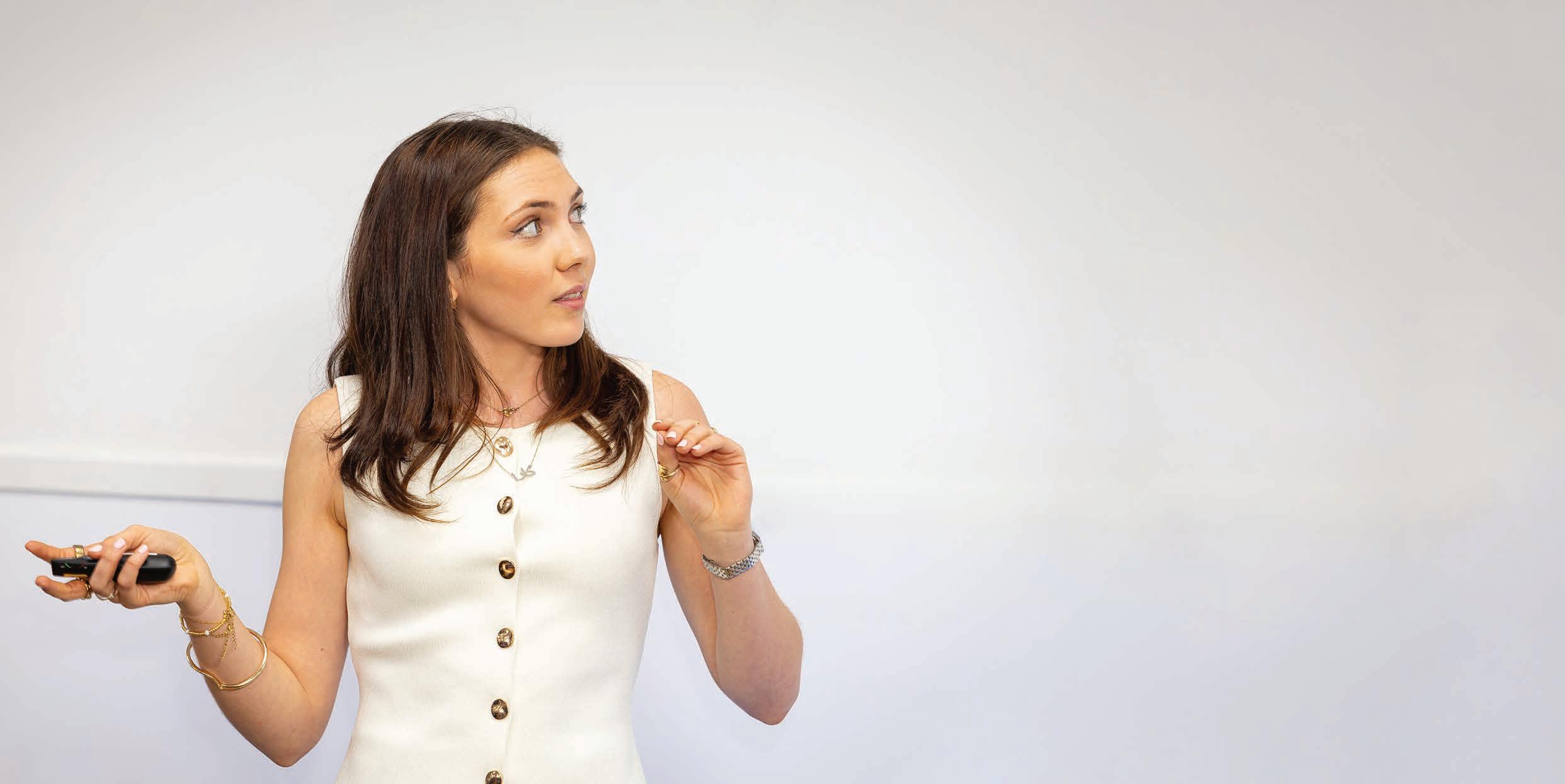
“ The School gave me the opportunity, guidance and contacts to do what I now love.”
Cara Peters: Bloomberg Degree Apprentice at London Institute of Banking and Finance. Leaver in 2024.
PERSONALISED GUIDANCE
Every pupil receives individual support to explore future pathways, whether that’s applying to the UK’s top universities, prestigious international institutions, competitive apprenticeships, or planning a gap year that broadens horizons. Dedicated staff guide students through the UCAS process, personal statements, and interview preparation, ensuring they feel confident and well-prepared.
BEYOND THE CLASSROOM
Clubs, societies, and sports enrich Sixth Form life, encouraging collaboration, leadership, and curiosity. From debating to drama, enterprise to volunteering, pupils develop the skills and self-belief that employers and universities value most.
OLD IPSWICHIAN NETWORK
The Ipswich School journey doesn’t end at graduation. The Old Ipswichian network connects pupils to a thriving community of former students across the world. Through mentoring, events, and professional connections, it provides ongoing support and inspiration long after school days are over.
Life in the Sixth Form is stimulating, varied, and rewarding; preparing students not only to succeed, but to thrive as they take their next steps with confidence and ambition.
99% gained University places at either their ‘FirstChoice’ or ‘Insurance’ University of 2025 leavers
“We’re here to help.”
CONTACT DETAILS
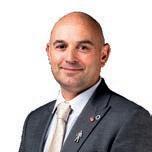
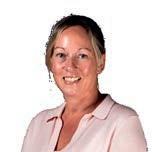
Mr Andrew Calver
amc@ipswich.school
Mrs Julie Hayes
jih@ipswich.school
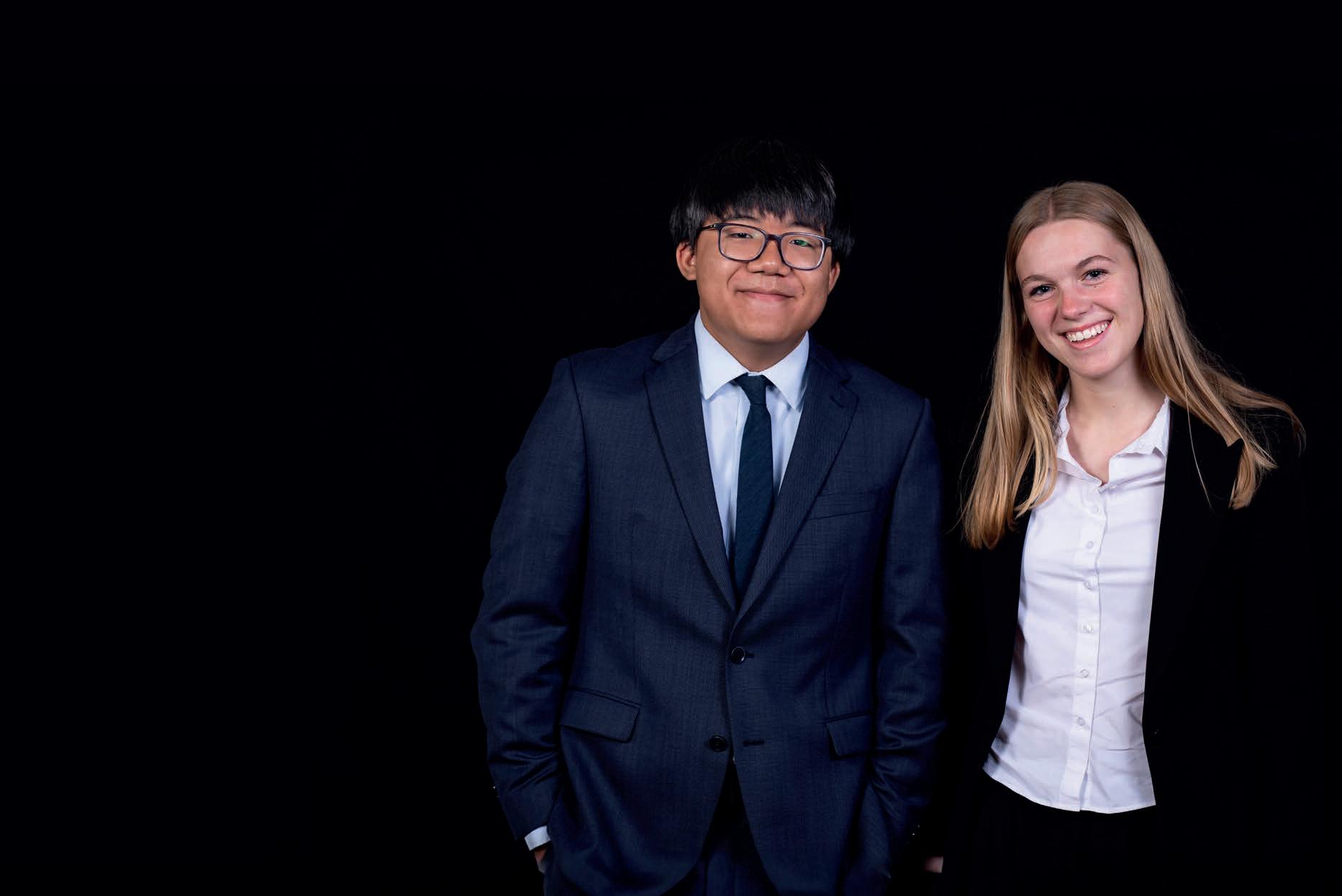
“We are proud to lead such a wonderful Sixth Form community.”
Colin and Megan Head Boy and Head Girl 2025–2026
Creating Extraordinary Futures Since 1399
